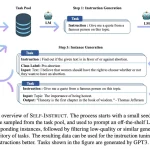Price-Fixing involves the agreement to buy and sell a product at a set price. This tactic is considered anticompetitive. The goal of price-fixing is to influence supply and demand in a specific market. It is also a violation of antitrust laws. Regardless of the reason for price-fixing, the process is illegal and can lead to criminal prosecution.
Price-fixing often occurs in supply chain management. When a manufacturer raises its prices, the raw material supplier agrees to match the price hike. Often, this is done by hiking the costs of inputs. Another classic example is when a business submits a tender and receives a higher price than is normal.
In order to be able to price a product the same as competitors, a manufacturer must ensure the market is competitive. This means that a manufacturer cannot restrict price competition by granting geographically exclusive distribution rights to a single firm. The government can enforce price-fixing laws against the manufacturer if it is found that the prices are artificially high.
Price-fixing can also happen in vertical relationships between companies. For example, a manufacturer and an automobile dealer may agree to sell a particular product at a set price. While these deals are generally illegal, some companies use this tactic to keep costs low. A manufacturer may also pressure its retailers to sell their products at a specific price.
Many countries have imposed criminal penalties against executives accused of price-fixing. Although the Archer Daniels Midland Company lysine conspiracy is one of the most famous cases, price-fixing cases have also occurred in many other countries. These convictions have resulted in billions of dollars in damages and fines.
Price-fixing laws are also changing the way companies evaluate their people. Some companies still pay their salespeople a straight salary, while others are adopting a volume-based evaluation system. In this way, managers are learning how to evaluate people on more comprehensive dimensions. This is an important step in ensuring the integrity of the company.
While it may be difficult to determine whether two companies are colluding by setting retail prices, there is a general rule of thumb that will help determine whether or not price-fixing is a legitimate practice. If two companies collude and set a price that enables them to compete without competition, it is probably price-fixing.
Governments may also attempt to freeze prices for essential commodities. Some countries have already done this, freezing prices for things like sanitizers and self-hygiene products. While price-fixing may seem reasonable, it often results in unintended consequences, making the situation worse. In fact, these unintended consequences only create more pressure for governments to enact stiffer Federal controls and bigger programs.
Price-fixing is a serious form of anti-competitive behavior. While there are few laws protecting businesses from price fixing, it is still illegal for businesses to agree on prices and to set prices in a manner that is inconsistent with market conditions.












